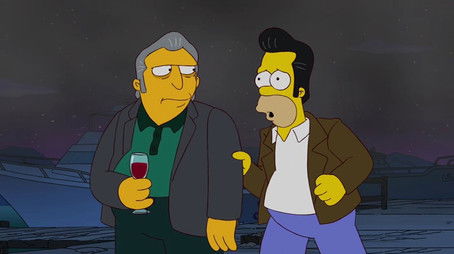
Sorry, we have not watched this yet.

Homer ends up in the Springfield penitentiary after getting caught bribing an official; an FBI investigator offers Homer a way to reduce his jail time.
Sorry, we have not watched this yet.